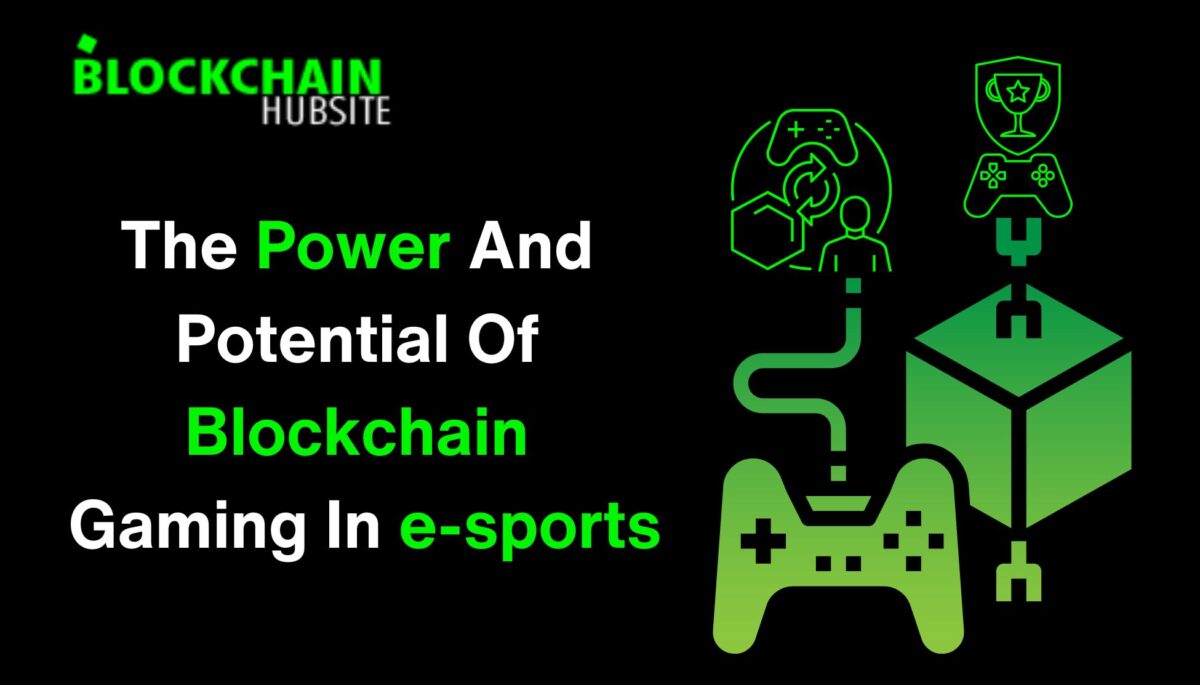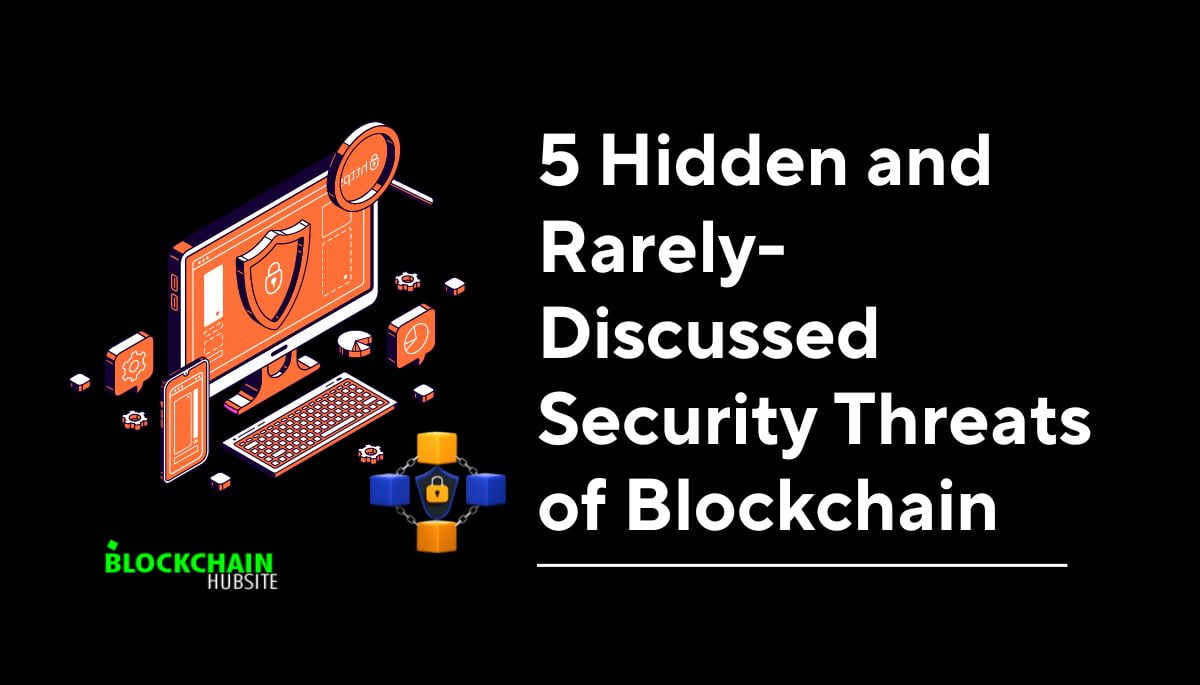
Table of Contents
Introduction
The Esports Market was worth $915.30 million in 2018, and by 2026, it’s predicted to be worth $2,976.74 million, a compound annual growth rate (CAGR) of 18.35%, says Verified Market Research.
Blockchain Gaming In e-sports is opening up new possibilities and transforming the landscape with its ability to provide transparency, verifiable scarcity of digital assets, and direct connections between developers, players, and fans.
Electronic sports, which involve organized competitions in video games, have gained immense popularity in recent years, captivating millions of followers worldwide. With the rise of high-quality streaming and more accessible access, e-sports events such as the International and the League of Legends World Championship are attracting record-breaking audiences and becoming as popular as traditional athletic events. The exponential rise of competitive gaming shows that it is becoming a major sport in its own right.
Meanwhile, blockchain technology is quickly becoming a game-changer in this new century. Blockchain has the potential to revolutionize numerous sectors by facilitating the development of trustworthy decentralized networks and methods of transferring value. Non-fungible tokens and cryptocurrencies are among the first significant uses of this technology. Nevertheless, blockchain technology may also affect e-sports, altering their operations and user chances and experiences.
Enhancing security, providing verifiable evidence of digital scarcity and ownership, and creating more transparent and trustworthy ranking/matchmaking protocols are just a few of the many advantages that arise when blockchain is integrated into e-sports ecosystems.
Additionally, blockchain can open up new possibilities in virtual worlds/metaverses, predictive gaming, NFT-based games and collectibles, and e-sports leagues and tournaments by enabling decentralized models. Blockchain technology offers a fresh approach to bolstering the e-sports industry’s already robust foundations while opening up new avenues for future income and business model development.
This article will examine both in light of blockchain’s present and future promise to revolutionize e-sports and competitive gaming. For the benefit of e-sports participants, sponsors, and businesses interested in getting in on the action, we will examine concrete use cases and applications of blockchain technology.
The Benefits of Blockchain for esports industry

Implementing blockchain technology offers substantial benefits for eSports organizations, competitions, and stakeholders. Here are a few key advantages:
Improved Security and Fraud Prevention
Hackers have a more challenging time accessing and exploiting vulnerabilities in blockchain due to its decentralized and encrypted structure. Smart contracts reduced fraud risk by allowing payouts to be automatically processed whenever match requirements are met. When events reach the multi-million dollar threshold, these safeguards become extremely important for protecting prize pools.
Verifiable scarcity for in-game assets.
Using blockchain authentication, game makers may add verified scarcity to their creations. Blockchain ledgers can uniquely identify digital goods such as character skins or coveted trophies. Due to this scarcity, digital items become more valuable to gamers, which opens up new avenues for revenue.
Digital Assets That Remain Outside of Games Typically, the platform on which developers make their games available to players limits or determines what items or achievements they can gain in-game. These assets may be safely stored on a blockchain ledger with NFT integration, which allows them to work across games and metaverses and gives players back control.
Transparency in Ranking and Matchmaking
Blockchain technology allows for trustworthy transparency regarding matchmaking algorithms and player skill rankings. Rather than depending on the caprices of centralized governing authorities, stakeholders can audit advancements and performances on tamper-evident ledgers. This safeguards integrity.
Leagues and Events-Based Decentralized Organizations
Using smart contract protocols, tournament scheduling, brackets, betting, and other related logistics can be decentralized. Compared to centralization, this reduces the possibility of corruption while increasing transparency and accountability.
Applications for e-Sports

While the benefits of blockchain are broad, this technology can alter eSports in several specific aspects as well:
Verified Player Identities and Histories
Players can register and authenticate their online identities and performance histories on tamper-evident ledgers in a unique way using blockchain technology. This stops account smurfing and service boosting, which are forms of cheating used to manipulate rankings.
Tracking In-Game Achievements
Smart contracts allow for the issuance of notable milestones in the game and NFTs similar to trophies. They provide persistent interoperability proof outside of the game. Achievements and cross-game item merging are also available to players.
managing digital assets and prizes
Collectibles, limited edition skins, and other digital products can all have NFTs encoded in them. Instead of just giving cash prizes, these can be used as competition prizes or grants. Their rarity adds value to an asset.
Managing Digital Assets and Prizes
Matchmaking and ranking algorithms can be run through decentralized protocols, allowing for clear progress without human oversight. Records of auditable ledgers aid in maintaining honesty in the marketplace.
Establishing Ranking and Matchmaking Systems
With blockchain, event organizers and participants may securely coordinate tournament scheduling, brackets, betting, and other details. Payouts are made instantly after the results are confirmed, and rules enforcement is automatic.
A focused blockchain integration opens up new business models and strengthens integrity through decentralization as eSports transition from a niche interest to a popular form of entertainment. Businesses like DreamTeam and Unikrn are examples of early adopters of these kinds of solutions. The synergistic dynamism between these areas suggests that widespread adoption is imminent.
Blockchain Gaming is the Next Big Thing in Esports
Integrating blockchain technology has several advantages, such as protecting the rapidly growing esports business and opening up new possibilities for decentralized coordination and ownership of digital assets. But technology also opens up new game formats and platforms that have the potential to change the esports landscape completely. Some possible outcomes include:
NFT-Based Games
New games that allow players to earn and trade NFTs are becoming increasingly popular. These games usually allow players to win tokens and rare NFT items by playing or competing in tournaments. The best players can generally cash out their prize money.
Predictive Gaming
Blockchain enables betting systems that do not rely on third parties. For example, developers might use smart contracts to create prediction-based games where users bet tokens on the results of matches or certain in-game events. Fees are reduced by eliminating intermediaries through trustless protocols.
Virtual Reality/Metaverses
People can purchase digital real estate and personalize their avatars in upcoming crypto-powered virtual environments like Decentraland. When opposed to traditional 2D esports, this paradigm opens up new possibilities for competitiveness and revenue. Virtual reality provides new avenues for investigation.
Though still in its infancy, blockchain gaming exhibits great promise when combined with esports. In contrast to conventional centralized games, this decentralized technology offers new forms of ownership, competitiveness, and economics, which should increase community engagement and open up new avenues for design. Broad disruption is likely imminent as early experiments provide proof. Any eSports organization that plans for something other than blockchain connections risks falling behind the curve in this exciting new industry.
The Future of Blockchain Gaming
Blockchain technology’s advantages and revolutionary potential have made its broad mainstream adoption appear inevitable as the technology and infrastructure develop further. Specifically:
Potential for Mainstream Adoption and Integration
Blockchain technology attracts the attention and resources of prominent video game developers and publishers, like Ubisoft, Square Enix, and Atari. There will be more blockchain integrations as the public gets more comfortable with cryptocurrencies. For example, next-gen Grand Theft Auto games will reportedly contain NFT support.
Compelling Model for Attracting Sponsors and Partners
Obtaining high-profile sponsorships and exclusive license deals from brands looking to be seen in gaming and esports becomes much easier with blockchain technology’s transparency, security, and ownership of assets. Encryption and smart contracts open up new possibilities for these partners, such as tokenized incentives, branded NFTs, and other products.
Blockchain as the Backbone for the Metaverse and Virtual Worlds
As video game worlds expand beyond two dimensions, blockchain technology will be essential for administering virtual currencies and assets in these ever-immersive games. Over Web3-enabled metaverses, players can constantly track their accomplishments and personalize their identities.
Blockchain can potentially reshape the gaming business in the following years. Although it’s early days, many examples prove crypto isn’t just a fad; it’s a paradigm shift that provides gamers and businesses with intriguing new value propositions compared to centralized systems. Esports organizations and serious players should closely monitor this space for developments that could impact their long-term strategies.
Challenges and Obstacles

Blockchain technology has many innovative features that are changing many industries but have problems. Here are some possible outcomes:
- Security – Security concerns may arise from malicious actions, such as hacking attacks and corrupted consensus systems. Concerns about privacy, including the exposure of sensitive personal information, arise from the stringent regulations imposed by the European Union and other governmental agencies (discussed in the Trust section).
- Governance and Community Support – The successful and effective execution of the blockchain’s governance model is essential for achieving stakeholder coordination and control, which requires community support. And while community backing is crucial for blockchain software development, there aren’t enough programmers.
- Scalability – Users may encounter sluggish transactions if a scalable blockchain cannot handle millions of transactions. As an example, AAA games have millions of users and perform various acts on their behalf; thus, potential scalability concerns for blockchain games can impact the players’ experience while playing the game.
- Gas fee – Faqir-Rhazoui et al. acknowledge that excessive fees may be problematic, but they also assert that several side chains have developed to address the issue. These side chains aim to create a system where gas fees are minimal or nonexistent and are compatible with larger chains like Ethereum. For example, Gods Unchained uses the Immutable X side chain, which charges players no gas.
Concluding Remarks
Blockchain technology has the potential to revolutionize e-sports in several meaningful ways. Blockchain creates new economic opportunities for players, teams, and leagues by bringing transparency, security, and ownership to in-game assets. Smart contracts enabled by blockchain can also automate processes that traditionally require manual oversight, like prize pools and player contracts.
While still in its early days, blockchain gaming points toward an e-sports ecosystem that is more open, accessible, and profitable for all participants. As the technology matures and sees higher adoption rates, we can expect blockchain to unsettle incumbent power structures in the industry and redistribute value more evenly to the players and fans who energize e-sports as a spectacle.
The technical innovations of the blockchain also suggest the dawn of entirely new e-sports fueled by decentralized platforms and business models. Whether current e-sports leagues integrate blockchain features or new blockchain-native games rise to prominence, this technology is poised to transform video game competition into a more transparent, rewarding, and community-driven experience. By claiming what was once confined to back-end systems, blockchain promises to give power in e-sports to the players themselves – a shift that could profoundly impact the industry’s future.
FAQs
1. How can blockchain help esports?
In esports, blockchain technology enables player-owned in-game assets, automated smart contracts, and tokenized income shares, increasing transparency and security. Thanks to the unchangeable records on the blockchain, this reduces cheating and fraud while distributing value to fans, players, and leagues more fairly.
2. What is the potential of blockchain gaming?
Blockchain gaming enables actual digital ownership of in-game assets and decentralized platforms and economies that distribute power and revenue more evenly to players and creators. This can revolutionize the gaming industry by making it more open, transparent, and profitable for all participants.
3. Is blockchain gaming profitable?
Blockchain gaming can be profitable as some players have earned significant income from in-game assets like Axie Infinity tokens or selling rare NFT items. However, profits rely on factors like continued game popularity, asset demand, and avoiding oversupply scenarios. Long-term sustainability requires creating lasting gameplay value.




